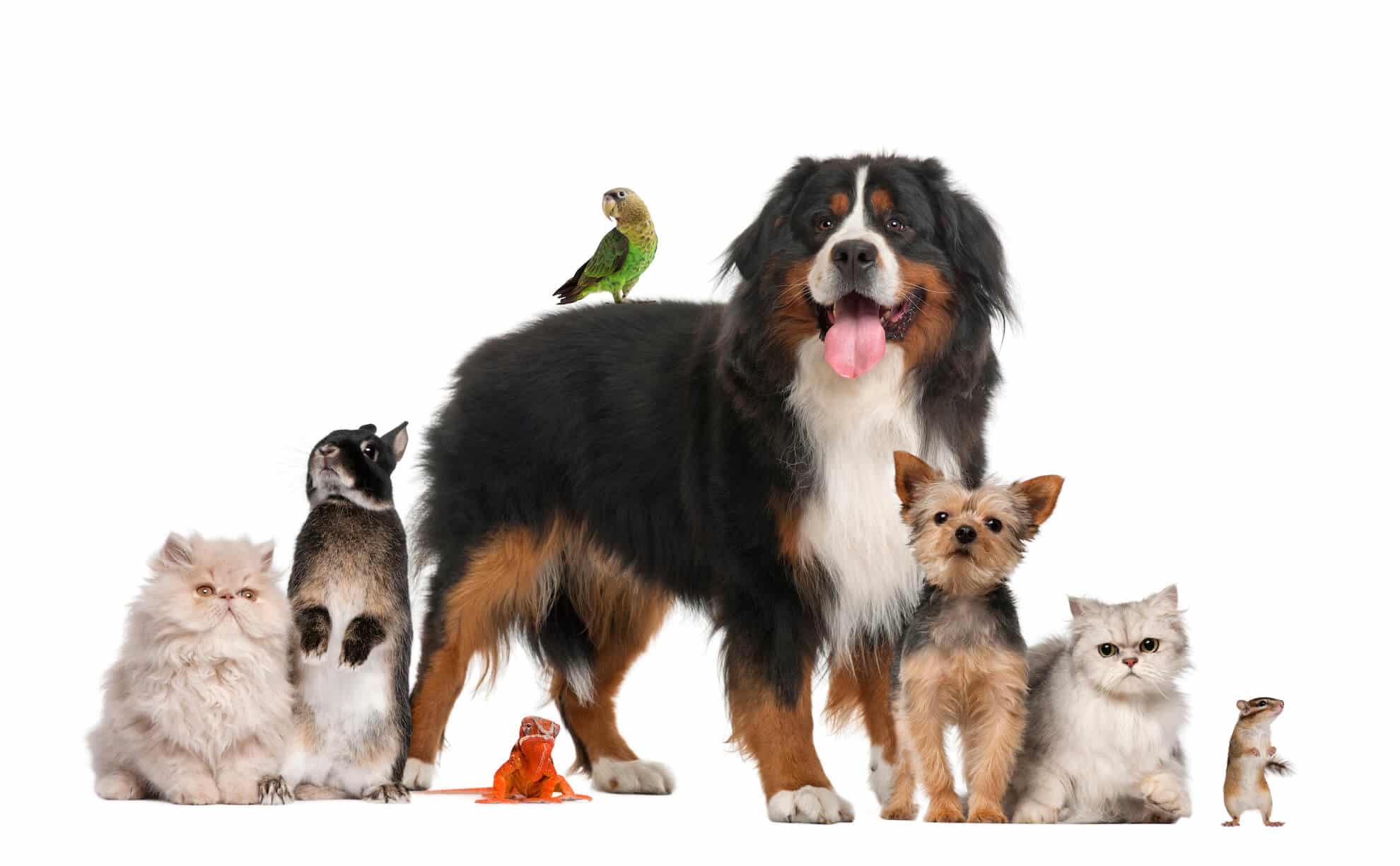Services – Small Ruminants
Langley Animal Clinic2023-01-23T19:53:08+00:00Vet for Sheep and Goats | Small Ruminants
Langley Animal Clinic
At Langley Animal Clinic, we have a team of experienced Vet for Sheep & Goats and other small ruminants. Langley was once mainly farmland, and we have years of experience dealing with common and not so common problems with Sheep and Goats.
Worms (Parasitic Gastroenteritis)
Goat Parasites
Gastrointestinal worms are a very common problem in sheep and goat flocks in the lower mainland. The clinical signs we see with parasitism are diarrhoea, ill-thrift, poor weight gain, anaemia, and bottle-jaw (swelling around the jaw). In certain cases a large worm burden can lead to severe illness and death.
A worm burden can easily be diagnosed by doing a faecal floatation. This is a simple test that we can perform to assess the numbers of worms present within the gut, which can be quantified using special microscope slide.
Treating worms is not just as simple as deworming regularly. The problem of anthelmintic resistance is ever growing, and so certain worms can be resistant to the products we use. Managing the environment and targeting specific animals at certain periods during the year can help lower worm burdens and also lower the amount of dewormer we use. Forming a dynamic deworming programme coupled with faecal egg counts can be quite easy and the benefits are great.
Urinary Blockage (Sheep/Goat)
Common Sheep & Goat Diseases
Urinary stones are a common problem seen in male sheep and goats – especially if castrated, and if not addressed quickly it can be fatal. If you notice any straining, inability to urinate or a lethargic animal that you have not observed urinating recently, then this is a huge cause for concern.
There are a number of factors that lead to obstruction. Most stones are composed of magnesium phosphate. A high grain diet with high magnesium and phosphorus and low roughage and calcium predisposes to stone formation as there are high concentrations of these minerals in the urine. If the urine is alkaline, this can influence stone formation. Our sheep and goats also have an anatomical difference where their urethra comes to a very narrow ending at the tip of the penis where even the smallest of stones can cause life-threatening blockage.
Treatment normally requires amputation of this urethral process and if obstruction is present further up the urinary tract can also necessitate surgical diversion of the urethra (perineal urethrostomy).
Prevention of stone formation involves a high fibre diet with little grain. Urinary acidifying agents (such as ammonium chloride) can also be fed to lower the PH of the urine thus preventing stone formation.



Bloat / Grain Overload (Ruminal Acidosis)
Common Sheep & Goat Diseases
Bloat is seen when a sheep or goat indulges on too much grain or rich pasture. There are two types of bloat – frothy bloat and free-gas bloat (the latter being more common). In the acute stages of bloat, the rumen fills with gas and the sheep/goat is unable to burp up this gas as the regular mechanism for inducing eructation (burping) is disrupted. This in itself can cause cardiovascular and respiratory depression and can be fatal.
The sequelae of bloat can ofttimes be ruminal acidosis. The pH within the rumen can fall to such a level as to kill off all the healthy bacterial flora within. This means the sheep/goat is unable to process and digest regular food. It can cause ulceration of the ruminal mucosa, bacterial translocation and systemic infection. Clinical signs of lethargy and inappetance following grain overload can be seen 24-48hrs post ingestion.
Treatment includes passing a stomach tube to alleviate the gas, administering oral medications to counteract the acidosis, systemic antibiotics and if severe enough may necessitate emptying the rumen and repopulating with healthy rumen fluid.
If you suspect your sheep or goat has gotten into grain don’t hesitate to contact us.
Care of Babies / Neonatal Diseases
Goat & Sheep Reproductive Health
Parturition
Parturition (lambing/kidding) occurs in three stages. First stage involves dilation of the cervix. Second stage involves expulsion of the foetus (or foetuses). This stage should take less than 1 hour in mature females and less than 2 hours in first-time lambers. If this time is surpassed or there is unproductive straining (straining or pushing without expulsion of lamb/kid) then assistance may be necessary. If unsure then veterinary advice is recommended. The third stage involves expulsion of the placenta. Any aberration in either stage of parturition can result in serious problems (cervical tears, peritonitis, retained placenta, uterine infection, etc.).
Colostrum management
Colostrum is the first milk from the mother post-lambing. This milk contains essential antibodies necessary for the neonate to defend itself from certain infections it can pick up from its mother, other animals and the environment. It is extremely important that the lamb/kid drinks enough of this milk within a few hours of birth. The neonate’s intestines are only able to absorb these life-saving antibodies early in life and their ability to absorb these diminishes rapidly after birth.
Naval care
Dipping of the naval with 10% povidine iodine as soon after birth as possible will help prevent naval infections. Naval infections can manifest later on in the lamb/kid’s life as multiple joint infections, meningitis, septicaemia, liver and bladder abscesses etc.
Scours (diarrhoea)
Scours are commonly seen in the neonate. A young animal can get dehydrated and quite ill in a short space of time if they have diarrhoea. Common agents that cause diarrhoea in our small young ruminants are E. coli, rotavirus, coccidiosis and cryptosporidium. Clostridial disease can also be seen in the neonate but vaccinating the dam 2 – 4 weeks pre-lambing should provide adequate antibodies in the milk. If scours are noted care must be taken to prevent dehydration and electrolyte imbalance. This must be supplemented along with the mother’s milk. If E. coli is involved, then antibiotics may be necessary. Outbreaks of scour with high morbidity can occur and may necessitate prompt action.
If you need a Vet for Sheep & Goats, then call Langley Animal Clinic to arrange an appointment, and get your farm animal on the track to better health.
Our Services
Small Animals
Contact
- Pet Care Service 24/7
- (604) 534 4813
- Email: info@langleyanimalclinic.ca
- 5758 203 St, Langley City, BC V3A 1W
Practice Hour
- Mon - Sat : 08:00am - 9:00pm
- Sun - Mon : 08:30am - 09:00pm
Animal Care and Advice
 Canine Companions: Beyond Basics, Feline Friends: The Purrfect Guide, Pet Health & Safety Tips
Canine Companions: Beyond Basics, Feline Friends: The Purrfect Guide, Pet Health & Safety Tips
Pet Diabetes Awareness: How to Recognize and Manage
November is Pet Diabetes Month, making it the perfect time to talk about a condition that affects thousands of cats...
 Pet Health & Safety Tips
Pet Health & Safety Tips
Everything You Need to Know About Microchipping Your Pet
No one thinks they'll lose their pet, until one moment they're by your side, and the next, they've slipped away...
 Pet Health & Safety Tips, Uncategorized
Pet Health & Safety Tips, Uncategorized
How to Prepare for a Pet Emergency: Tips from Langley Animal Clinic
Why Pet Emergency Preparedness Matters As a pet owner, you never want to imagine your furry friend facing a sudden health...
Subscribe To Our Newsletter
Get all the latest information on Events, Sales and Offers.

